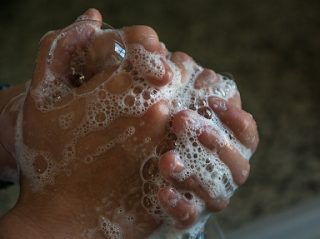Antibacterial Soaps :The Myth of Superiority
Antibacterial soaps often tout their ability to eradicate a higher percentage of germs compared to regular soap. However, several studies, including research from the FDA, have debunked this notion. The FDA revealed that there's no substantial evidence proving that antibacterial soaps are more effective than regular soap and water in preventing illness or reducing infection rates.
Risks and Concerns
Moreover, the use of certain antibacterial agents, like triclosan and triclocarban, found in many antibacterial soaps, has raised concerns. These chemicals have been associated with potential health risks, including hormonal imbalances and antibiotic resistance. Research suggests that continuous exposure to these chemicals may contribute to the development of resistant bacteria, rendering antibiotics less effective in combating infections.
Environmental Impact of Antibacterial Soap
Beyond personal health implications, the environmental impact of antibacterial soap deserves attention. These chemicals, when washed down the drain, enter water systems and ecosystems, posing risks to aquatic life and potentially disrupting the balance of natural microbial communities.
The Power of Plain Soap and Water
Contrary to popular belief, regular soap and water have been proven effective in eliminating germs and bacteria from our hands. The simple act of thorough handwashing for at least 20 seconds can significantly reduce the risk of infections, without the potential hazards associated with antibacterial agents.
Consumer Awareness and Choices
As consumers become increasingly informed about the realities of antibacterial soaps, there's a growing shift towards safer and more environmentally friendly alternatives. The FDA has banned certain antibacterial agents, leading manufacturers to reformulate their products or remove them from the market.
The truth about antibacterial soap unveils a narrative that challenges its perceived benefits. While the allure of germ-fighting products is understandable, scientific evidence suggests that plain soap and water remain the gold standard for effective hand hygiene. The growing awareness of potential risks associated with antibacterial agents prompts a reconsideration of choices, urging consumers to prioritize safety and sustainability in their quest for cleanliness.
By embracing well-established hygiene practices and opting for safer alternatives, the US population can ensure effective germ protection while safeguarding personal health and the environment.




Post a Comment
Post a Comment